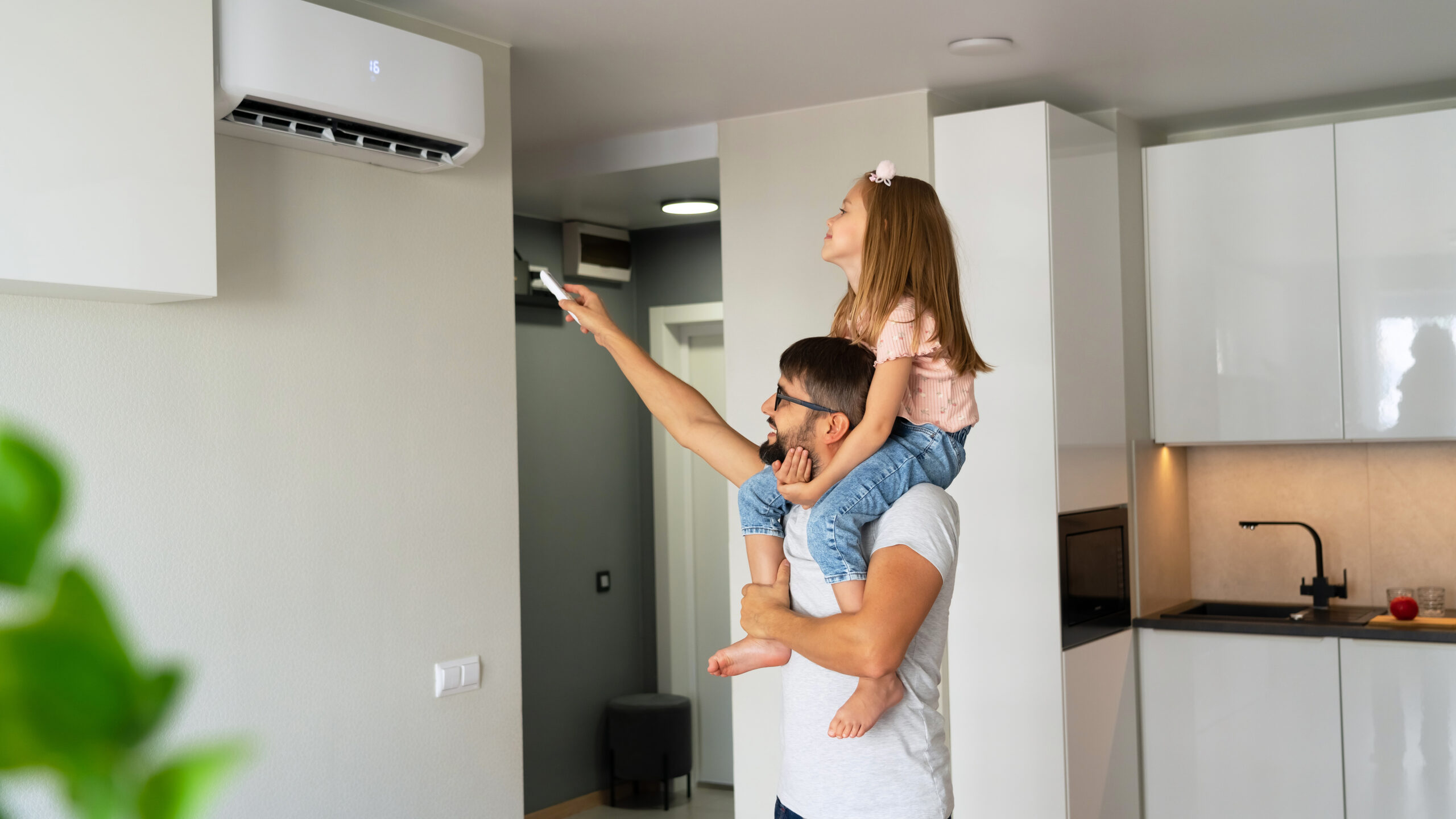 Menu
Menu
- About
- About Degree Residential
- About Our Residential Services
- Past Projects
- Customer Testimonials
- Community Involvement

Summer is here, and with it comes sweltering heat that often makes us crank up the air conditioning. However, running your HVAC system non-stop can lead to sky-high energy bills and an overworked unit. This post will walk you through top summer HVAC tips to maximize your system’s performance, boost energy efficiency, and keep you cool without breaking the bank.
Regular maintenance is crucial for ensuring your HVAC system runs efficiently throughout the summer. A well-maintained unit not only performs better but also lasts longer, saving you money on costly repairs or replacements.
First, replace and/or clean the air filters every one to three months. Dirty filters can restrict airflow, making your unit work harder. Next, check the outdoor unit for debris such as leaves, grass, or dirt, which can impede performance. Finally, schedule a professional inspection with Degree Residential at least once a year to identify and fix any issues before they become major problems.
Investing in a smart thermostat is one of the best ways to optimize your HVAC system. Smart thermostats allow you to control the temperature remotely and set schedules that match your lifestyle, ensuring you’re not cooling an empty house.
Start by setting your thermostat to a higher temperature when you’re away and lowering it when you’re home. Many smart thermostats also have learning capabilities, adjusting the temperature based on your habits. This not only keeps you comfortable but also reduces energy consumption, leading to lower utility bills.
Effective insulation is key to maintaining a cool home and reducing HVAC usage. Insulation helps keep the cool air inside and the hot air out, making your system work more efficiently.
Begin by checking your attic and walls for proper insulation. Consider adding weather stripping to doors and windows to seal any gaps where air can escape. Additionally, insulating your ductwork can prevent cool air from leaking out before it reaches your living spaces, further enhancing efficiency.
Window coverings can play a significant role in keeping your home cool. By strategically using curtains, blinds, or shades, you can block out the sun’s heat and reduce the workload on your HVAC system.
During the hottest part of the day, close your window coverings to prevent heat from entering your home. Opt for light-coloured or reflective materials that can deflect sunlight. For an added layer of protection, consider installing thermal or blackout curtains to improve insulation and keep your home cooler.
Fans are a great way to supplement your HVAC system by improving air circulation and making your home feel cooler. Install ceiling fans in rooms where you spend most of your time and set them to rotate counterclockwise during the summer. This creates a wind-chill effect, making you feel cooler without lowering the thermostat. Additionally, use exhaust fans in kitchens and bathrooms to remove heat and humidity, further reducing the strain on your HVAC system.
While DIY maintenance can go a long way, there are times when it’s best to call in a professional. If your HVAC system is making unusual noises, not cooling effectively, or showing signs of wear and tear, it’s time to seek expert help. One of Degree Residential’s expert HVAC technicians can diagnose and fix issues that may not be apparent to the untrained eye. Regular professional inspections can prevent minor problems from turning into costly repairs, ensuring your system runs efficiently throughout the summer.
Staying cool in the summer doesn’t have to come at the expense of high energy bills. By following these HVAC tips, you can enhance your system’s performance, save money, and reduce your environmental impact. From regular maintenance and smart thermostats to improved insulation and strategic window coverings, small changes can make a big difference.
Reach out to us today for personalized advice and professional services that will keep you cool all summer long. Now that you’re equipped with these summer HVAC tips, put them into action and enjoy a cooler, more energy-efficient home.